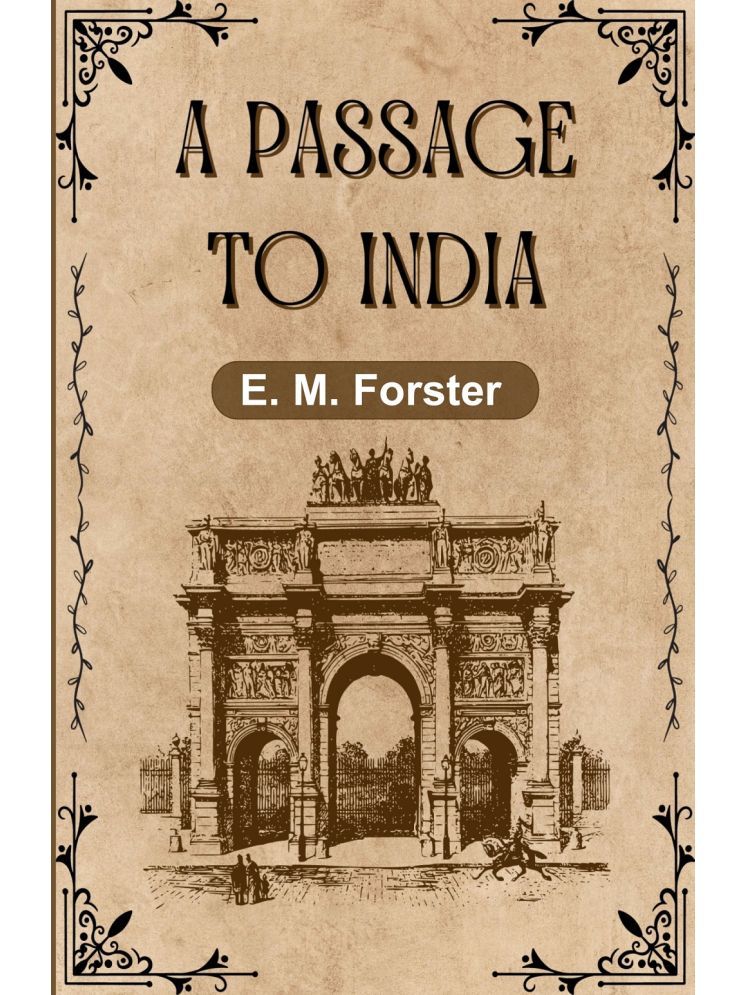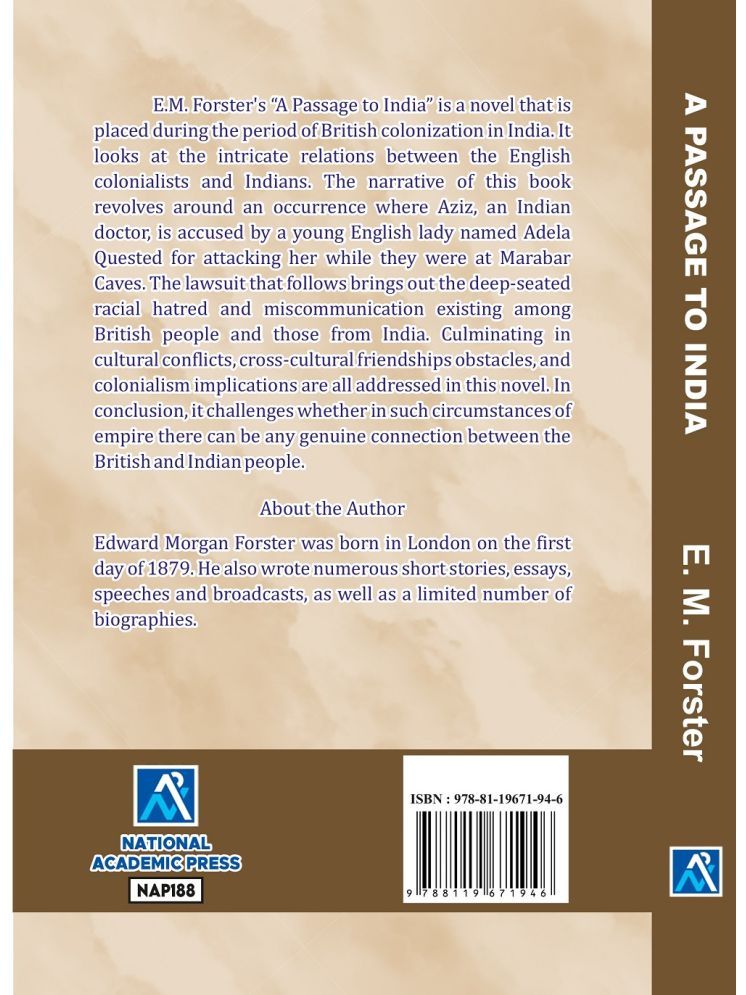A Passage to India by E. M. Forster is a compelling exploration of cultural tensions, colonialism, and the complexities of human relationships set in British-ruled India during the early 20th century. The novel revolves around the interactions between the British colonial authorities and the native Indian population, particularly through the experiences of Dr. Aziz, a Muslim physician, and his relationship with two British women—Adela Quested and Mrs. Moore. When Adela accuses Dr. Aziz of assaulting her during a trip to the Marabar Caves, the ensuing trial exposes the deep-seated prejudices, misunderstandings, and power imbalances between the two cultures. Through its richly drawn characters and intricate social dynamics, A Passage to India raises profound questions about race, identity, and the possibility of genuine connection across cultural divides. With its evocative setting, nuanced character development, and exploration of moral and ethical dilemmas, the novel remains one of Forster’s most acclaimed works, offering a powerful commentary on the complexities of empire, friendship, and the human experience.


